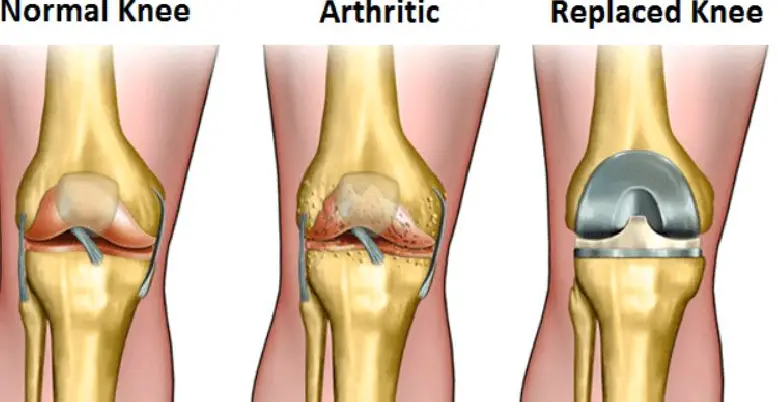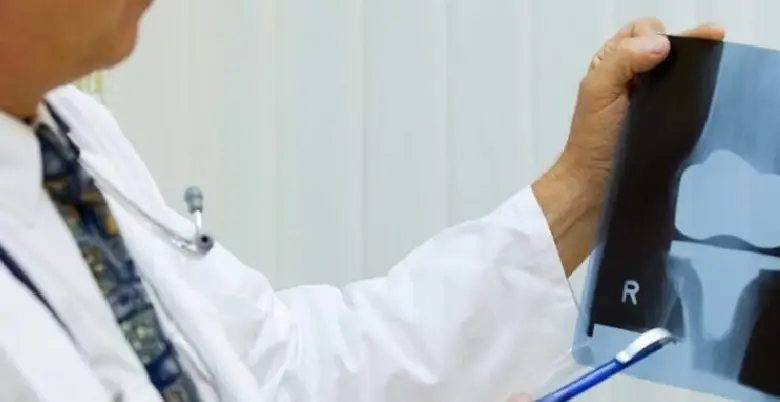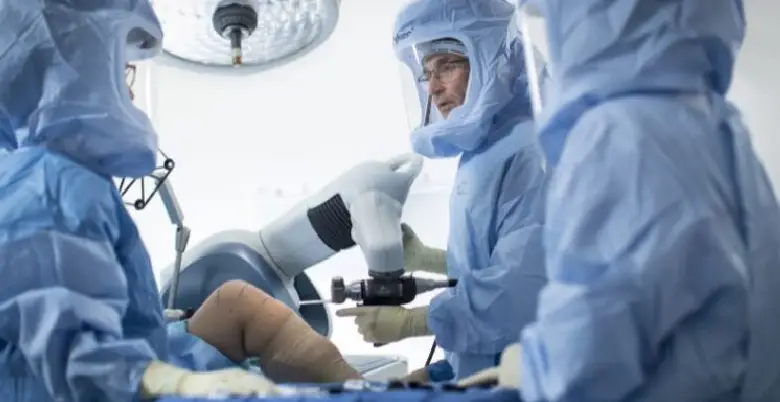Knee replacement is also commonly known as knee arthroplasty, it is a surgical procedure performed to replace a damaged or worn-out knee joint with an artificial joint. This procedure is typically suggested to those who have severe knee pain or impaired knee function due to such conditions like osteoarthritis or any type of injury.
You Should also know – Ewing Sarcoma Treatment
During Knee replacement surgery, damaged portions of the knee joint are removed and replaced with artificial joints which are made of components like metal alloy, high-grade plastic and polymers. It is designed in such a way that it mimics like a healthy knee joint.
Read about – Plastic Surgery
Prior to the surgery, the orthopedic will first evaluate your medical history, conduct a physical examination and may order diagnostic test such as X-Ray, MRI or blood test. During the surgery, general anesthesia will be provided during the procedure and an incision will be made in front of the knee, remove the damaged bone and cartilage and then attaching a new artificial joint. The kneecap can also be replaced depending upon the situation and case.

After the surgery, you will be monitored in a recovery room and soon after some time physical therapy and rehabilitation will begin to help you regain strength, improve range of motion and slowly learn to walk with assistance.
Full recovery may take several months but it depends upon individuals health, age and the extent of the surgery. Gradually it will take time to increase strength and to grab back to your daily routine.
Have a look at : Lasik Surgery
Knee replacement surgery is generally safe, but like any surgical procedure, it carries some risks. Possible complications may include infection, blood clots, knee joint stiffness, implant loosening or wear, nerve damage, and persistent pain. Your surgeon will discuss these risks with you before the surgery.
Introduction of Knee Replacement Surgery
There are different type of knee replacement procedures based on the extent of the joint damaged, The most common types include total knee replacement, partial knee replacement and complex knee replacement.
Here are a few common conditions in which knee replacement is carried out:
Read More : Mole Removal
- Osteoarthritis: It occurs when protective cartilage that cushions the end of bones in knee joint wears down leading to pain, stiffness and reduced mobility.
- Rheumatoid arthritis: It is a disease which leads to inflammation in the joints. Over the time, chronic inflation can lead to damage of knee joint leading to pain, swelling and eventually the need for knee replacement surgery.

- Post-Traumatic arthritis: It develops after an injury or a trauma to the knee such as fracture or ligament tear.
- Knee-deformities: Condition such as severe bowing or knock knee, can put excessive stress on the knee joint, leading to cartilage damage and the need for knee replacement surgery.
- Other conditions: There are other less common conditions that can lead to knee joint deterioration, including avascular necrosis (loss of blood supply to the bone), bone dysplasias, and certain types of tumors.
Note: It’s important to note that knee replacement surgery is not the first line of treatment for these conditions. Typically,
Read about – Root Canal Treatment
conservative measures such as medication, physical therapy, lifestyle modifications, and assistive devices are initially recommended. However, if these conservative treatments fail to provide relief and the knee joint becomes severely damaged, knee replacement surgery may be considered as a treatment option.
Knee Replacement Surgery
Here is an overview of the treatment process of knee replacement surgery:
Read more : Appendix Treatment
- Diagnosis: The first step is thoroughly examining and diagnosing the condition and the medical history by conducting a physical examination test and other test such as X-Ray, MRI and blood test.
- Conservative Treatment: Before considering surgery, other non-surgical treatments are typically explored such as pain killer, anti inflammatory drugs and use of braces.
- Surgical Consultation: If conservative treatment fails to provide relief to knee joint then surgery comes into the play. The surgeon will discuss all the benefits, risk and potential impacts of the surgery.

- Surgery: Generally, the surgery is performed under general anesthesia. The surgeon makes an incision in the front of the knee, removes the damaged bone and cartilage, and then attaches the artificial joint components (prosthesis) made of metal alloys, high-grade plastics, and polymers.
- Recovery and rehabilitation: After surgery, you will be closely monitored in a recovery area before being transferred to a hospital room. Physical therapy and rehabilitation begin soon after surgery to help you regain strength, improve range of motion, and learn to walk with assistance, usually with the help of a walker or crutches. Pain management, wound care, and preventive measures against blood clots are important aspects of the recovery process.
Read also about : Gallbladder Cancer Treatment
Knee Replacement Surgery Cost
The cost of knee replacement surgery in India can vary depending on several factors, including the city, hospital, surgeon, type of knee replacement, and any additional medical services required. Generally, knee replacement surgery in India is more affordable compared to many other countries.
Have a look at : T-cell Lymphomas Treatment

- Total Knee Replacement Surgery Cost: Approximately INR 2,50,000 to INR 6,00,000
- Partial Knee Replacement Surgery Cost: Approximately INR 2,00,000 to INR 4,50,000